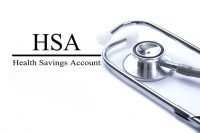 Health savings accounts (HSA) have become very popular in the last few years. An HSA account is defined as a tax‐advantaged medical savings account available to taxpayers in the United States who are enrolled in a high‐deductible health plan (HDHP).
Health savings accounts (HSA) have become very popular in the last few years. An HSA account is defined as a tax‐advantaged medical savings account available to taxpayers in the United States who are enrolled in a high‐deductible health plan (HDHP).
The money contributed to this account is not subject to federal income tax at the time of deposit, and if used for qualified medical expenses, can be taken out tax‐free as well. You also have the ability to invest the proceeds of the account. That makes an HSA account a powerful tool for addressing your medical needs, as it is essentially a super charged Roth IRA account. No other vehicle that I know of has this triple tax advantage.
They are currently subject to contribution limits of $6,900 for family plans, and $3,450 for individuals. Those over the age of 55 can contribute an additional $1,000. These limits have been on the rise, and many believe they will be greatly expanded to reduce the burden on the Federal Government.
You can use your HSA account for all kinds of medical needs. Dental, vision, hearing aids, acupuncture, chiropractic care, and even massage with a written prescription. You are even allowed to use your HSA account for your spouse and children not covered by the plan.
There are some unique ways you can use your HSA account to your advantage. If you have an upcoming or even an unanticipated medical expense, you can ask your HR department to defer your paycheck into the account to effectively get a discount on your medical expense. You can even pay for your medical expense out of pocket now, and collect those receipts for many years. This could allow your HSA account to appreciate through investments, and then use the HSA account decades later to reimburse those medical expenses. All you have to do is have an HSA account, save the receipts, scan them into a folder, and have them handy should you ever be audited in the future. Now that’s a great way to potentially reduce your total medical expenditures!
I believe this is a greatly underutilized resource for retirement planning. I couldn’t cover all the information and benefits in this column, but if you’d like to learn more about how to take full advantage of this powerful investment vehicle feel free to contact us, we’d be happy to help you.
